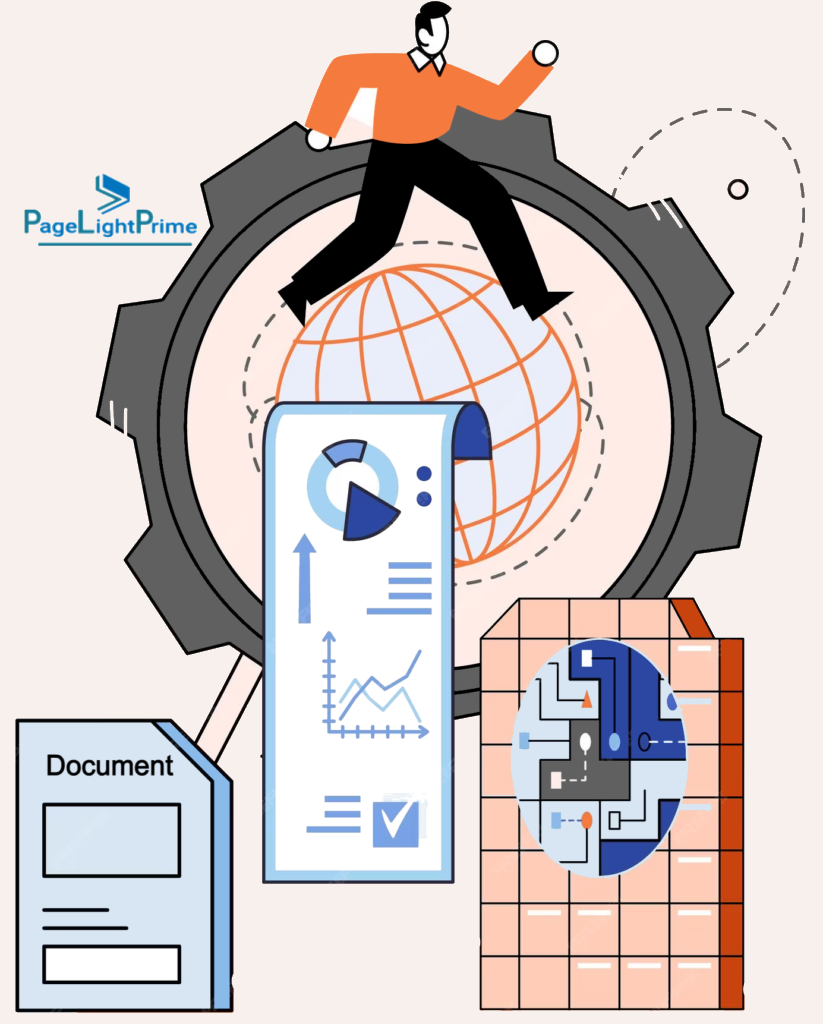Data Analytics in Legal Practice: Leveraging DMS for Decision Making
Law firms are no longer confined to traditional methods; they are embracing technology-driven solutions to enhance efficiency, accuracy, and informed decision-making. One such transformative tool is Document Management Systems (DMS), which, when coupled with data analytics, empowers legal professionals to navigate complexities and deliver unparalleled legal services. In this blog post, we will explore the profound impact of data analytics in legal practice, focusing on how leveraging a DMS can revolutionize decision-making processes.
Written by Knowledge Team, posted on November 28, 2023

Understanding Data Analytics in Legal Practice
Data analytics, the systematic analysis of data sets to extract meaningful insights, is reshaping the landscape of legal practice. Law firms are increasingly recognizing the transformative power of data analytics in optimizing decision-making processes. By leveraging advanced analytics within the Legal Document Management Software, legal professionals can unlock a multitude of benefits that redefine the way they operate.
Benefits of Data Analytics in Legal Practice
Strategic Decision-Making
Data analytics empowers legal professionals to make strategic decisions backed by data-driven insights. By analyzing patterns and trends within case data, legal practitioners can formulate informed strategies that enhance the overall success of legal proceedings.
Improved Case Outcomes
The ability to analyze historical case data within a DMS allows legal professionals to identify successful strategies and factors that contribute to favorable case outcomes. This insight aids in crafting effective litigation strategies, increasing the likelihood of positive results for clients.
Enhanced Efficiency and Productivity
Data analytics streamlines workflows within a law firm. By automating repetitive tasks and identifying bottlenecks, legal professionals can optimize their processes, leading to increased efficiency and productivity. This, in turn, allows for a more focused and effective allocation of resources.

Proactive Risk Management
Through the analysis of historical cases and legal precedents, legal professionals can proactively identify potential risks. This proactive approach enables the development of risk mitigation strategies, reducing the likelihood of legal disputes and enhancing overall risk management practices.
Client-Centric Legal Services
Understanding client needs is at the core of providing exceptional legal services. Data analytics allows legal professionals to gain insights into client preferences, communication patterns, and case history. This information facilitates the customization of legal services, fostering stronger client relationships.
Time and Cost Savings
Automated data analysis within a DMS reduces the time spent on manual tasks, allowing legal professionals to focus on more complex aspects of their work. This not only saves time but also contributes to cost-effectiveness, improving the overall economic efficiency of legal practice.

Compliance Assurance
Staying compliant with ever-evolving legal regulations is a significant challenge. Data analytics tools within a DMS can monitor changes in laws and regulations, ensuring that legal professionals remain informed and in compliance. This reduces the risk of legal ramifications due to non-compliance.
Predictive Analytics for Litigation Strategy
Predictive analytics utilizes historical case data to forecast potential outcomes. By leveraging this technology, legal professionals can anticipate challenges, devise effective litigation strategies, and position themselves strategically for successful case resolutions.

Incorporating data analytics into legal practice management software through a DMS is not just a technological advancement but a strategic move toward redefining the standards of excellence in the legal profession. The benefits extend beyond efficiency gains, offering a profound impact on decision-making, client satisfaction, and the overall success of legal endeavors. As technology continues to advance, the integration of data analytics becomes not only beneficial but imperative for legal professionals looking to thrive in today’s competitive legal landscape.
The Role of Document Management Systems (DMS)
Document Management Systems have emerged as invaluable assets for law firms, offering a centralized repository for storing, organizing, and retrieving legal documents. Beyond the traditional role of managing documents, modern DMS solutions are equipped with robust data analytics capabilities. Let’s delve into the ways in which DMS enhances data analytics in legal practice:
Efficient Document Organization
A DMS categorizes and organizes documents systematically, creating a structured data environment. This organized data is crucial for data analytics, as it allows legal professionals to easily access, retrieve, and analyze relevant information.
Streamlined Case Management
Data analytics within a DMS enables streamlined case management. Legal professionals can track the progress of cases, identify bottlenecks, and analyze historical data to optimize workflows, all within their law firm case management software. This proactive approach facilitates strategic decision-making throughout the legal process.

Insightful Legal Research
DMS analytics tools can transform the legal research process. By analyzing patterns in legal documents, historical cases, and legislative changes, legal professionals can enhance the quality and efficiency of their research, ensuring comprehensive and up-to-date information.
Risk Assessment and Mitigation
Data analytics in a DMS facilitates a data-driven approach to risk assessment. By analyzing historical case outcomes, identifying patterns, and assessing potential risks, legal professionals can advise clients on strategies for risk mitigation and avoidance.
Enhanced Client Relationship Management
Understanding client needs and expectations is essential in legal practice. DMS analytics can provide insights into client preferences, case history, and communication patterns. This information is invaluable for tailoring legal services, fostering stronger client relationships, and anticipating future needs.

Compliance Monitoring
In an era of constantly evolving legal landscapes, compliance is a critical concern. DMS analytics tools can monitor changes in regulations, track compliance status, and provide real-time alerts, ensuring that legal professionals stay ahead of regulatory requirements.
Predictive Analytics for Litigation Strategy
By analyzing historical case data within a DMS, legal professionals can employ predictive analytics to anticipate potential outcomes and formulate effective litigation strategies. This forward-looking approach enhances preparedness and improves the likelihood of favorable case resolutions.

Challenges and Considerations
While the integration of data analytics and DMS in legal practice offers immense benefits, it’s crucial to address challenges such as data security, privacy concerns, and ethical considerations. Legal professionals must prioritize the responsible and ethical use of data analytics tools to uphold client confidentiality and maintain the integrity of the legal system.
Conclusion
Data analytics in legal practice, when leveraged through a robust Document Management System, transforms the way legal professionals operate. By unlocking insights from vast amounts of data, legal firms can make informed decisions, optimize processes, and deliver unparalleled value to clients. As technology continues to advance, embracing data analytics within legal practice becomes not just an option but a necessity for staying competitive in today’s dynamic legal landscape. It’s a journey towards precision, efficiency, and informed decision-making that defines the future of legal practice.
